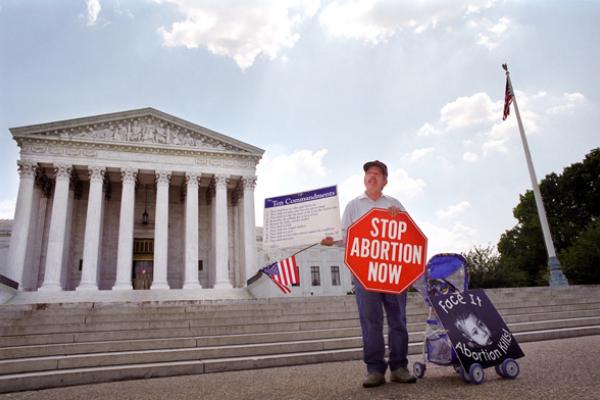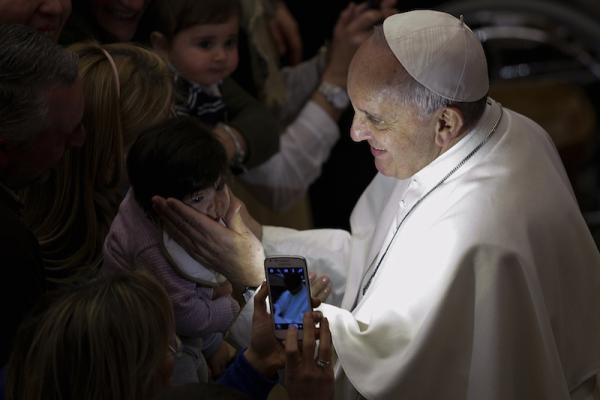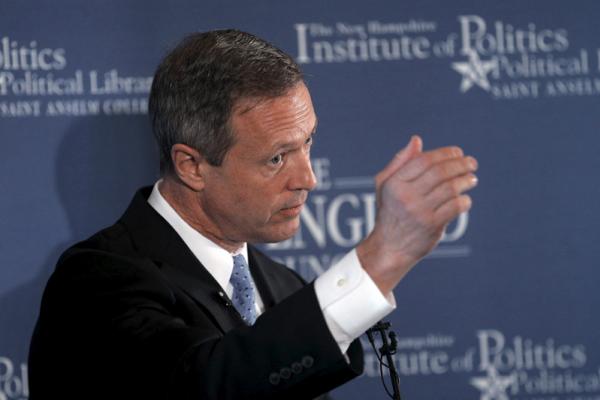Despite Americans’ shifting opinions on a range of moral and ethical issues, abortion foes have been encouraged by numbers showing that opposition to abortion rights appeared to have resisted serious slippage, and was even gaining traction.
But a Gallup poll released May 29 shows that may be changing: 50 percent of all Americans now identify as “pro-choice,” the first statistically significant lead over the “pro-life” label, which came in at 44 percent, since 2008.
The data suggest this could signal an end to the seesaw battle that has characterized opinions on abortion over the past few years.
Political scandals are evergreen.
On any given week, one or another political leader, cultural star, or renowned athlete are experiencing an embarrassing and public downfall. Recently, we’ve born witness to the fall of a former Speaker of the House and a reality television celebrity. Next week, a new cast of characters will take their place. So ubiquitous are such scandals that they are the backdrop for the television show Scandal, a show I know is on because my Facebook page explodes with conversation about it!
But here’s the odd thing about these scandals, these falls from grace: they are so common that they shouldn’t shock us anymore. And yet these scandals sell newspapers, draw eyes on television. We can always muster some outrage at these all too common crimes.
I have been in this conversation like many others, excited about a future of possibility. And yet it occurred to me that I forgot to do something in all of this panic and evaluation and re-visioning.
I forgot to say I’m sorry.
The Senate debate period on the Patriot Act ran past midnight Sunday night, effectively allowing three provisions of the controversial act to expire. Despite warnings of national security risks, "it is clear that the lapse will not come close to debilitating counterterrorism efforts," according to CNN.
The NSA's bulk data collection program was one of the provisions to expire, officially shutting down by 8 p.m. Sunday night.
The Senate is expected to restore some form of these provisions by midweek.
The fate of the Temple of Artemis, the fate of any temple, is one that need not be feared. Death, and collapse, have lost their sting. This process of decay is not an inherently ugly one. There was beauty in those remaining stones and still value in the ones that had already returned to the ground from whence they had been pulled.
Whether human or stone, from dust we have come and to dust we shall return.
Pope Francis wants to treat the children of Italian prisoners to a train ride within the Vatican walls, a gesture intended to draw Catholics’ attention to Jesus’ command to minister to prisoners and the poor.
On May 30, Vatican guards will open a great iron gate to the “Children’s Train,” which will travel along the city-state’s only branch line for an appointment with the pope.
The chosen passengers are the prisoners’ children from Rome, Latina, Bari, and Trani.
They will have a midday meeting with Francis and will be given colored kites.
Martin O’Malley, who just wrapped up his second term as Maryland governor, is loudly, proudly Catholic — even when some doctrine-devoted church followers hiss at his socially liberal views.
Here are five faith facts about O’Malley, 52, who is expected to announce his candidacy on May 30.
Religion is notoriously behind on nearly every societal curve there’s ever been. Some say that’s a good thing, as it’s supposed to be countercultural.
But there’s a difference between pandering to cultural trends and being tone-deaf or willfully ignorant. And as one of my old grade-school counselors once said: when you know better, do better.
If we look around us we know that there are better ways to employ the resources we have to affect positive social change, deepen discipleship, and strengthen community of many kinds. But we adhere to mid-twentieth-century models and understandings of how the world works, then look around, asking ourselves why no one cares anymore.
It’s time for Moneyball church.
My personal theology is a bit of a haphazard salad, and some of the odder items in the Bible make me pretty sure we aren’t supposed to follow the Good Book word for word. But I’d like to believe there’s Someone up there somewhere, and surely some Bible stories will teach my kids moral lessons that will help them grow up into the fine, upstanding people I want them to be. Right?
So I buy a book of bible stories — a charming little book filled with fluffy sheep and smiling cartoon people in tunics and sandals — telling myself it’ll be Aesop’s fables plus Daniel Tiger’s Neighborhood, with the extra heft of blessings from the Big Guy Upstairs. I sit down to pick out our first story.
And I can’t.
1. D.C. Metro Bans ‘Issue Ads’ after Pamela Gellar Submits Prophet Muhammed Cartoon Ad
Gellar, who leads the group that organized the ‘Draw Muhammed’ cartoon contest that prompted a shooting in Texas, submitted the winning drawing to run as an ad in the Washington, D.C. metro. According to the WMATA, that will not be happening.
2. Killing It: Nebraska’s Ban Another Sign of Decline in Support for Death Penalty
“A growing number of Republicans have recently taken up the cause of banning the death penalty in Nebraska and other states. They argue that it is inefficient because it does not deter murderers, is more expensive than imprisonment for life thanks to the costly trials and lengthy appeals, and is at odds with Christian morality.”
...








